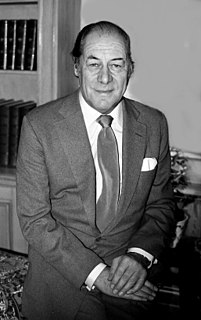A Quote by Pankaj Mishra
The act of writing should not be accompanied by the sense of an audience, someone peering over your shoulder, but in nonfiction I think it’s almost imperative that you identify an audience so you can confirm or challenge or undermine whatever ideas or prejudices they might have about your subject.
Related Quotes
When someone says "that resonates with me" what they are saying is "I agree with you" or "I align with you." Once your ideas resonate with an audience, they will change. But, the only way to have true resonance is to understand the ones with whom you are trying to resonate. You need to spend time thinking about your audience. What unites them, what incites them? Think about your audience and what's on their mind before you begin building your presentation. It will help you identify beliefs and behavior in your audience that you can connect with. Resonate with.
Acting is bad acting if the actor himself gets emotional in the act of making the audience cry. The object is to make the audience cry, but not cry yourself. The emotion has to be inside the actor, not outside. If you stand there weeping and wailing, all your emotions will go down your shirt and nothing will go out to your audience. Audience control is really about the actor
I have found, in short, from reading my own writing, that my subject in fiction is the action of grace in territory largely held by the devil. I have also found that what I write is read by an audience which puts little stock either in grace or the devil. You discover your audience at the same time and in the same way that you discover your subject, but it is an added blow.
A famous bon mot asserts that opinions are like arse-holes, in that everyone has one. There is great wisdom in this... but I would add that opinions differ significantly from arse-holes, in that yours should be constantly and thoroughly examined.We must think critically, and not just about the ideas of others. Be hard on your beliefs. Take them out onto the verandah and beat them with a cricket bat.... Be intellectually rigorous. Identify your biases, your prejudices, your privilege.
I don't write about sex because it's not really my subject. I love it when other people write about it, but it's not my subject, and I don't want anyone I've had sex with to write about it. Plus, you're in front of an audience, and they picture wherever you're writing about. I'm 52; no one in the audience wants to picture that.
The last collaborator is your audience ... when the audience comes in, it changes the temperature of what you've written. Things that seem to work well -- work in a sense of carry the story forward and be integral to the piece -- suddenly become a little less relevant or a little less functional or a little overlong or a little overweight or a little whatever. And so you start reshaping from an audience.
As an actor, you should always keep your trump card hidden from your audience. I want the audience to keep expecting more and more from me. I want to do 'different' work - good and memorable roles - so that audience appreciate me more. That's why I love to surprise my audience with something they never expect me to do.






































